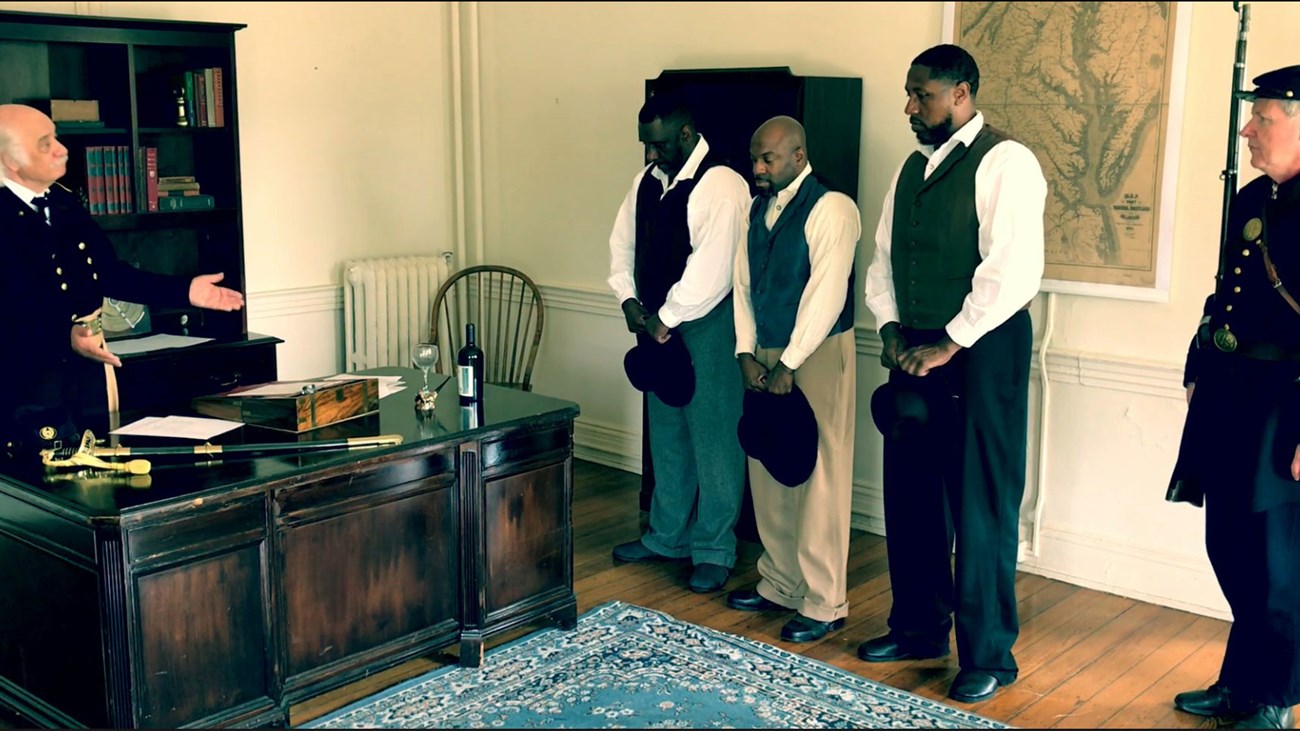Last updated: August 2, 2024
Article
Fort Monroe and the "Contrabands of War"

NPS Photo
No one wanted war; that much is certain.
Least of all Abraham Lincoln. But he would have the government's property secured and its excise taxes collected. And so the Civil War began with those limited goals in mind.
During his campaign for the presidency in 1860, Lincoln made this point repeatedly to a disbelieving South: he had no intension of disturbing the institution of slavery where it already existed, whatever his personal opinion on the morality of slavery. And when war came at Fort Sumter on April 12, 1861, he remained steadfast. Return to the Union on the old terms, he said, and all will be forgiven.
But weeks turned into months and the South remained defiant. In the field, abolitionist officers were chaffing under this moderate policy. In the west, General John C. Frémont, commander of the Union Army of the West, issued a proclamation on August 30, 1861 that effectively freed all slaves in the state of Missouri.
Lincoln was horrified. The loyal, slave-holding states of Missouri and Kentucky were not yet firmly under Federal control and Frémont's order might tip them into the Confederate camp. Lincoln ordered the general to rescind his proclamation and when Frémont refused, Lincoln publically revoked it and removed Frémont from command.
Lincoln reacted in like fashion when General David Hunter issued a similar proclamation in his Military Department of Georgia, South Carolina and Florida.
Meanwhile, in the east, General Benjamin Butler had devised a much more politically astute policy. When a Virginia slave owner demanded the return of three slaves that had escaped to Fort Monroe, Butler refused, on the grounds that these persons (or property, as the Confederacy considered them) were being used to wage war against the Union (the term "contraband of war" will soon be used to describe such escaped slaves, though Butler himself does not use the phrase per se). No mention was made of emancipation.
Congress registered its approval of Butler's policy when it passed the First Confiscation Act. This law stated that if slaves are, in fact, property and if this property is owned by any person in active rebellion against lawful Federal authority, then the U.S. military has every right to deny its use to any such person. Any slave that could be wrested from the Confederacy would therefore, in a technical sense, become the property of the United States government.
Within days of Butler's announcement, the flood gates opened. By the time General Frémont was sacked and General Hunter reprimanded, there were hundreds of runaway slaves sheltering under the guns of Fort Monroe. That the federal government would one day repatriate or even sell this confiscated property soon became unthinkable. But then what?
At this point, public opinion in the North regarding the institution of slavery began to shift. Would these runaway slaves and their descendants become forever the property of the federal government, or would they, at some point, be released to make their own way in the world? By the time Lincoln issued the Emancipation Proclamation on January 1, 1863, the people of the North are decided. The Civil War will be about more than collecting taxes and securing public property.
It will be about freedom.
